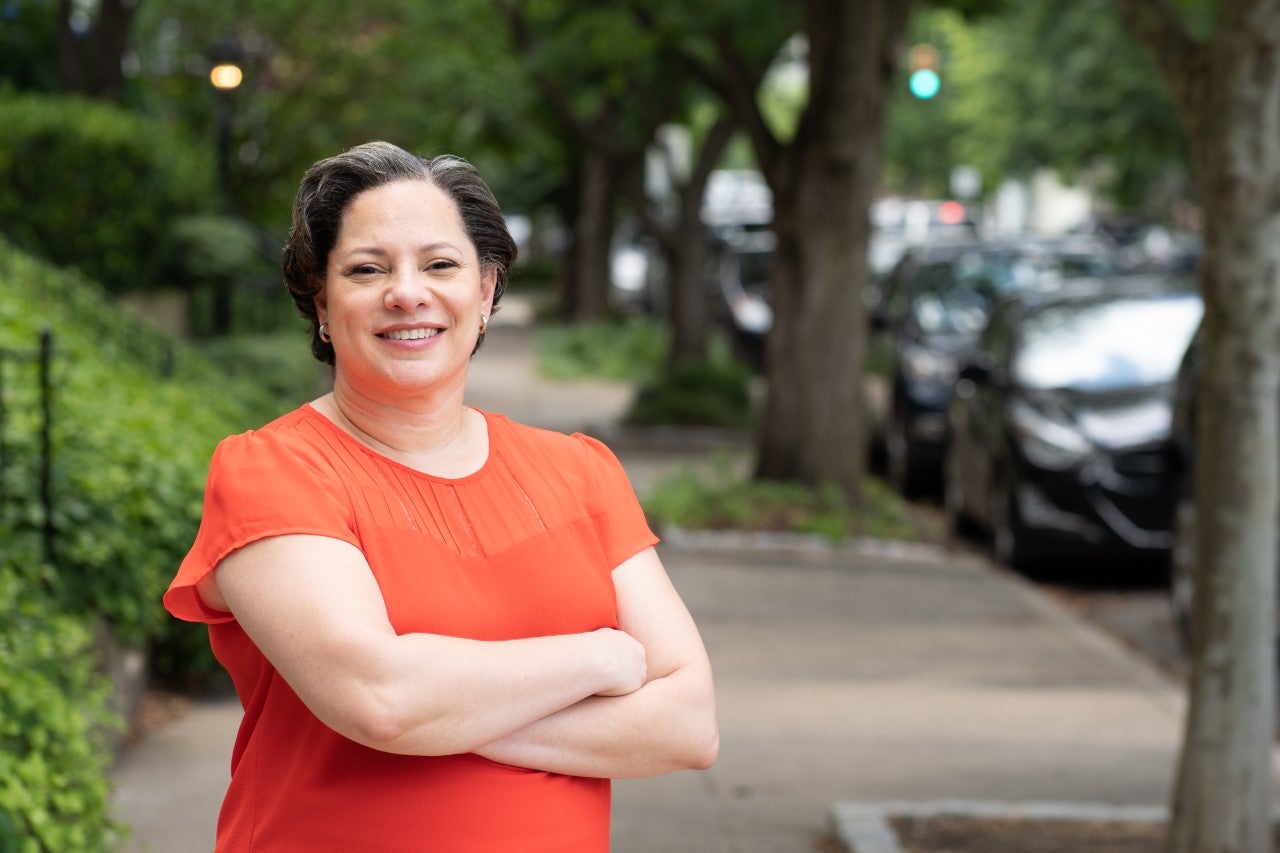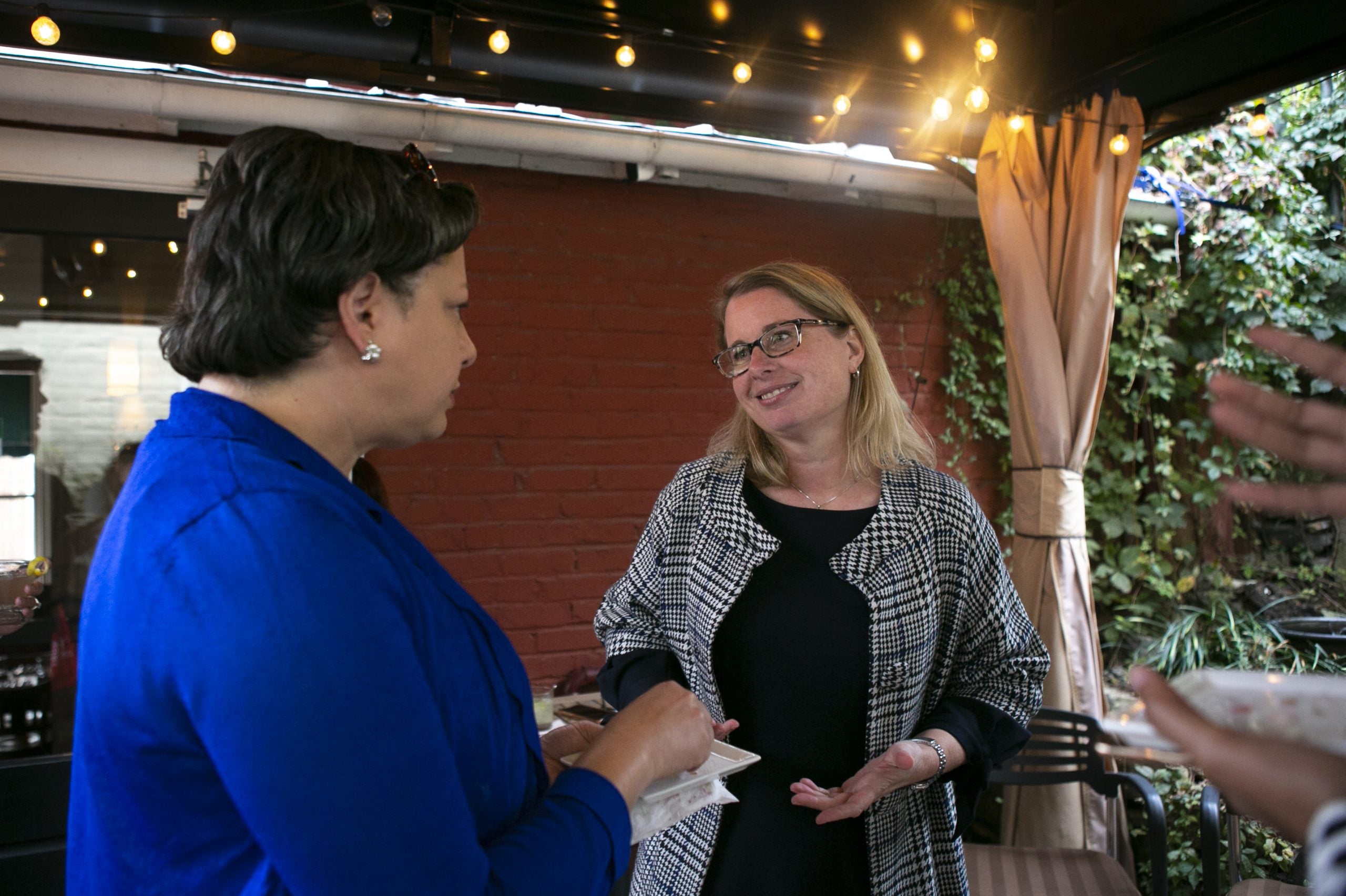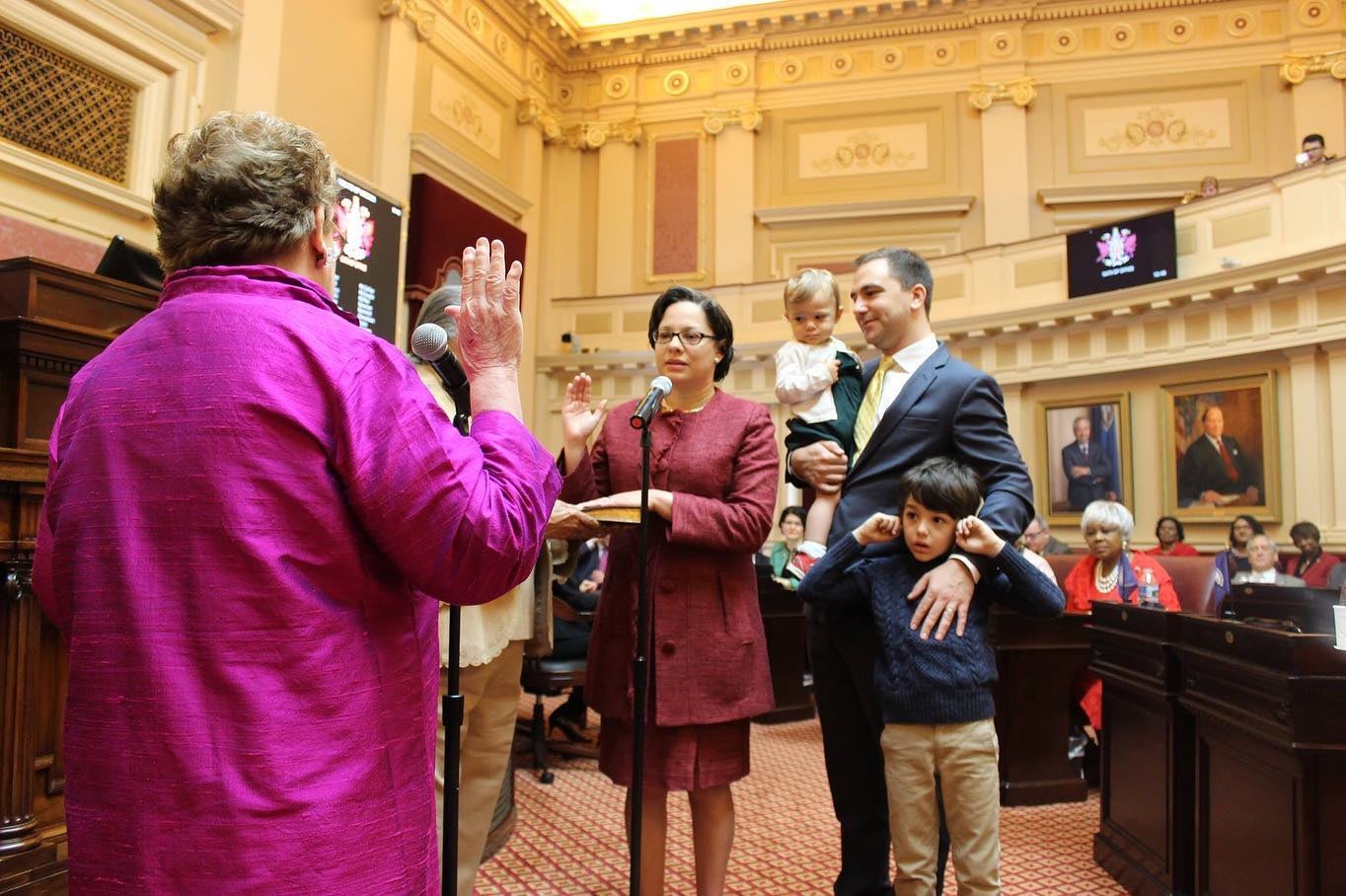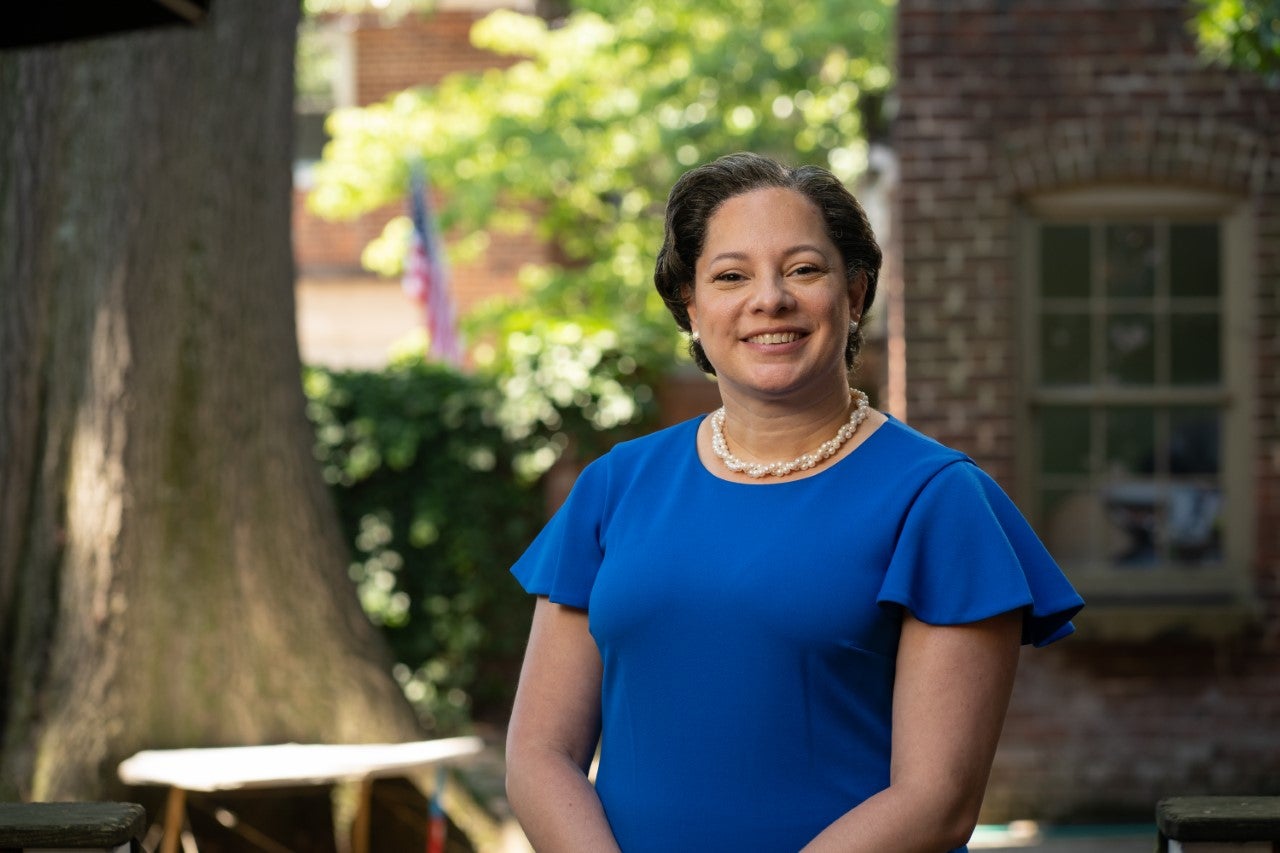Where do we go from here?
The late Dr. Martin Luther King, Jr., posed this very question in 1967 to the members of the Southern Christian Leadership Conference in Atlanta. His own leadership helped achieve the Montgomery Bus Boycotts, the desegregation of American schools and the Civil Rights Act of 1964. But as America stood at an inflection point, the daunting task of moving forward remained unclear.
Today, more than 50 years after Dr. King’s notable query, the country, the world, continues to grapple with the answer. And though no one solution will bring this nation to the point where Blacks are no longer judged by the color of their skin, where systemic oppression is uprooted from every governmental structure and where equal justice is attainable for those who had no part in creating the system, Virginia State Senator Jennifer McClellan says she’s ready to move her state closer to that once-envisioned land.

On Thursday, the former vice-chair of the Democratic Party of Virginia, and the current vice-chair of the Virginia Legislative Black Caucus, announced her candidacy for the governor of Virginia. “I come from a family tradition of community and public service, and learning about my parents’ experiences growing up in the segregated South during the Depression and through the Civil Rights Movement, I came to believe that government can either be a powerful force for change in solving people’s problems, or it can be a force that oppresses some and benefits others,” McClellan tells ESSENCE on the eve of launching her historic campaign. “So at a young age, I decided I want to help make government the force for good and problem solving.”
Nearly 15 years ago McClellan, now 47, entered the Virginia legislature to do exactly that. Since taking on politics she has become a recognized advocate for progressive change, leading the charge on investments in education, growing small business and expanding health care access. She’s also proposed measures to protect reproductive rights and reform the criminal justice system. And though her work in the Virginia House of Delegates and in the state Senate has been commendable, McClellan says that this moment in time calls for her to lead at the very top.
“The governor sets the agenda and sets the direction of where the commonwealth is going to go,” the native Virginian contends. “And we are at a critical juncture both in our state and in our country that requires us to ask, ‘Are we going to be a government that doesn’t leave anybody behind, that addresses 400 years of systemic inequity?’ ”
“We say justice is blind, but it’s not. Inequity was built into our criminal justice system from the beginning. We need to dismantle it.”
Jennifer McClellan
McClellan points out that the coronavirus pandemic coupled with the heightened racial tensions stemming from state-sanctioned killings of Ahmaud Arbery, Breonna Taylor, George Floyd and others, has forced the nation to think about ways in which it will rebuild to specifically address the inequities that demonstrators are underscoring with their activism. “I have a clear understanding of how we got here and where we need to go, and how we’re going to get there,” McClellan insists, “so that’s why I decided to jump in the race now.”
The wife and mom of two young children is entering a crowded field at the height of an international health crisis. The circumstances have led to unprecedented challenges, but the self-proclaimed believer of science says she’s able to make the shift from the campaign she once imagined. “Bringing different people’s perspectives to the table hasn’t changed, McClennan maintains. “You just have to find different ways of doing that. You need to meet the constituents where they are, use the technology or communication methods that they have available to them. So we’ve just pivoted to that.”
Those who are also vying for the position to be decided in a November 2021 election include former governor Terry McAuliffe, Lt. Gov. Justin Fairfax, Attorney General Mark R. Herring and Richmond Mayor Levar Stoney. McClellan also faces another woman hoping to make history next year as the first Black woman governor of any state: Jennifer Carrol Foy announced her intentions weeks ago after two years in the Virginia House of Delegates.
Each of McClellan’s competitors brings an impressive amount of experience and skills to the gubernatorial race, but McClellan insists that her background makes her uniquely qualified to serve. Her answer to why that is takes us back to King’s unrelenting question. “You can’t answer that question ‘Where do we go from here?’ if you don’t fully understand how we got here,” says McClellan. “Part of that is being in the community listening, listening to different perspectives, bringing those perspectives to the table to make change. I have both the experience and the ability to do that. I have done that and will take that to the executive branch.”

What McClellan would be able to do as governor is yet to be determined, but what she’s already done for the state in her roles as a community leader and legislator shows promise. A part of that encompasses her efforts in making sure that the justice system is fair and equitable for everyone. “We say justice is blind, but it’s not,” the University of Richmond law school grad argues. “Inequity was built into our criminal justice system from the beginning.”
In addition to working on a measure to properly address the issue of parole, McClellan shares that she’s also “spent a lot of time dismantling the school-to-prison pipeline.” Her most recent bill to address the disturbing trend will take effect on July 1. What she says she’s found during her research, is that a great deal of the negative behavior exhibited by kids could and should be handled through a disciplinary process that does not involve locking them up and throwing away the key.
“Behaviors that start to manifest underlying mental health issues have been overcriminalized,” McClellan asserts. “The number one way that has happened is by charging disorderly conduct on kids in school. So we worked to eliminate that crime for children, and also to give principals flexibility again to decide if they are going to handle this through the discipline process, or is it something that law enforcement needs to handle?”
The overcriminalization of Black bodies is rooted in history, a history that McClellan strongly believes needs to be dismantled. It’s why the daughter of civil rights activists and the senator from Richmond has also fought for the removal of Confederate statues in the former capital of the Confederacy. The symbols of White supremacy, McClellan stresses, were constructed in response to the rising political, social and economic power of Black people. “They were part of an effort that also included disenfranchisement, the institution of Jim Crow and racial terror through lynching and other means to put Black people back in their place.”

More than 400 years later, McClellan insists that our place is in the C-suites of corporations, in leadership roles within the community, and in any and every public and private space that we hope to occupy. Among them, the Virginia Executive Mansion in Richmond’s Capitol Square, the home to the governor of Virginia.
“Every day, I wake up thinking, ‘What am I going to do to achieve King’s vision of a beloved community which is consistent with the ideals our country was founded on, but was never a reality for all Americans, and certainly not all Virginians?’ ” McClellan asserts. “So I view my public service as a continuation of his, because his question still needs to be answered and that work isn’t done.”
